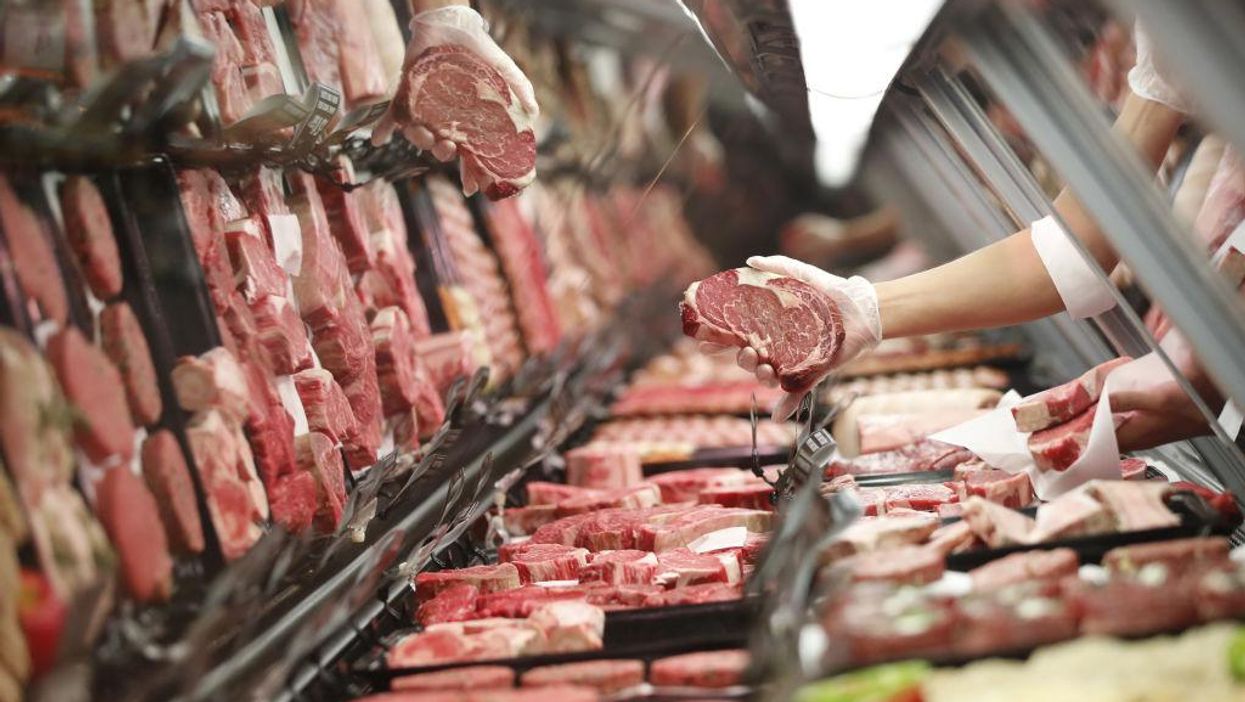
George Frey/Bloomberg via Getty Images

A new examination published in the journal of Food Science and Nutrition has found that people who consume meat have lower levels of anxiety and depression compared to vegans and vegetarians.
The broad analysis surveyed 20 studies associated with meat consumption and mental health and, in the end, found an undeniable association between vegetarianism or veganism and poorer mental health outcomes, Business Insider reported.
The collection of studies — which spanned from 2001 to mid-2020 and represented nearly 172,000 people from across four continents — primarily "relied on questionnaires in which respondents self-reported whether they ate meat or not, then answered prompts about whether they experienced anxiety and depression," Insider noted.
Of the 172,000 represented, about 158,000 people reported eating meat while 13,000 did not.
After examining the respondents' feedback, researchers conclusively determined that "meat abstention is clearly associated with poorer mental health."
That thesis was true regardless of a person's biological sex, though researchers were not able to review whether other demographic factors — such as age, socioeconomic status, or health history — also played a part.
Researchers, however, were careful to note that the study didn't prove that meat avoidance in and of itself directly causes mental health decline or that meat consumption causes mental health healing.
Urska Dobersek, a psychologist at the University of Southern Indiana who co-authored the study, told Insider that "meat avoidance may be both the 'chicken' and the 'egg' when it comes to mental illness."
"How many people have you met that are both happy and diet all the time?" Dobersek explained. "Probably very few — and there is a strong, scientific reason for that — restrictive diets make people unhealthy and unhappy in the long term."
What can be concluded with clarity, Dobersek suggested, is that simple elimination diets, especially as it relates to meat consumption, don't work.
"The idea that we can become healthier, or happier, by eliminating foods and beverages is simplistic, unscientific, and not supported by valid evidence," she stated.
The analysis comes as growing numbers within progressive circles seek to restrict meat consumption as a means to combat climate change and contribute to healthier lifestyles.
Billionaire Microsoft founder Bill Gates infamously suggested in February that wealthy nations around the globe stop eating beef and instead switch to lab-grown or plant-based alternative "meats" to avoid a climate disaster.
"You can get used to the taste difference," he argued at the time.
During the 2020 Democratic primary, Vice President Kamala Harris, too, said that "government can and should" regulate meat consumption in order to bolster healthy eating as well as climate consciousness.
Phil Shiver